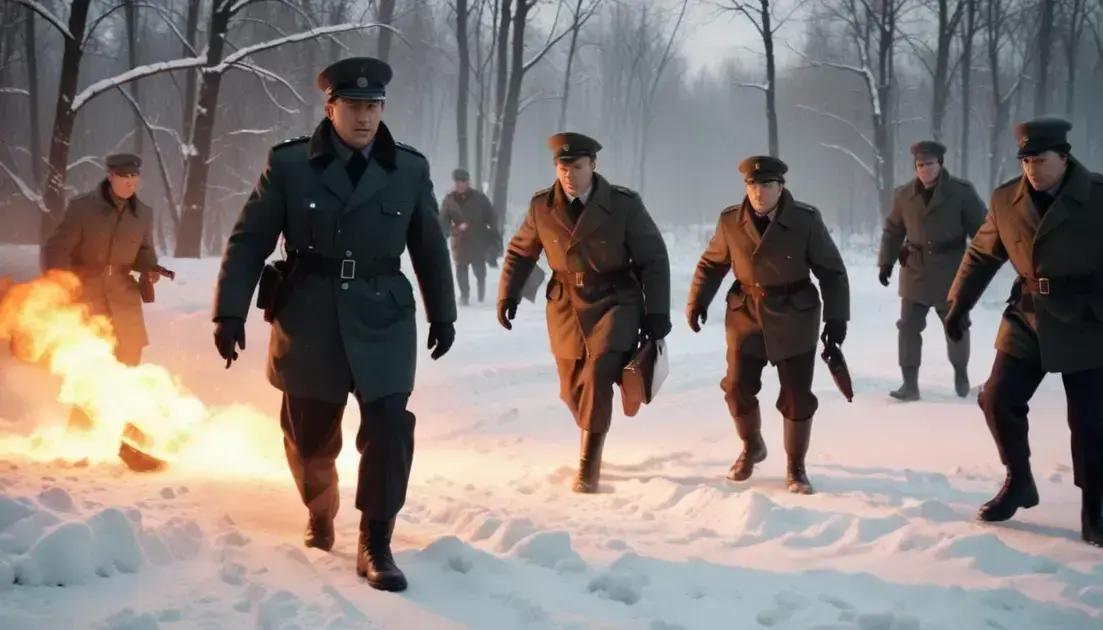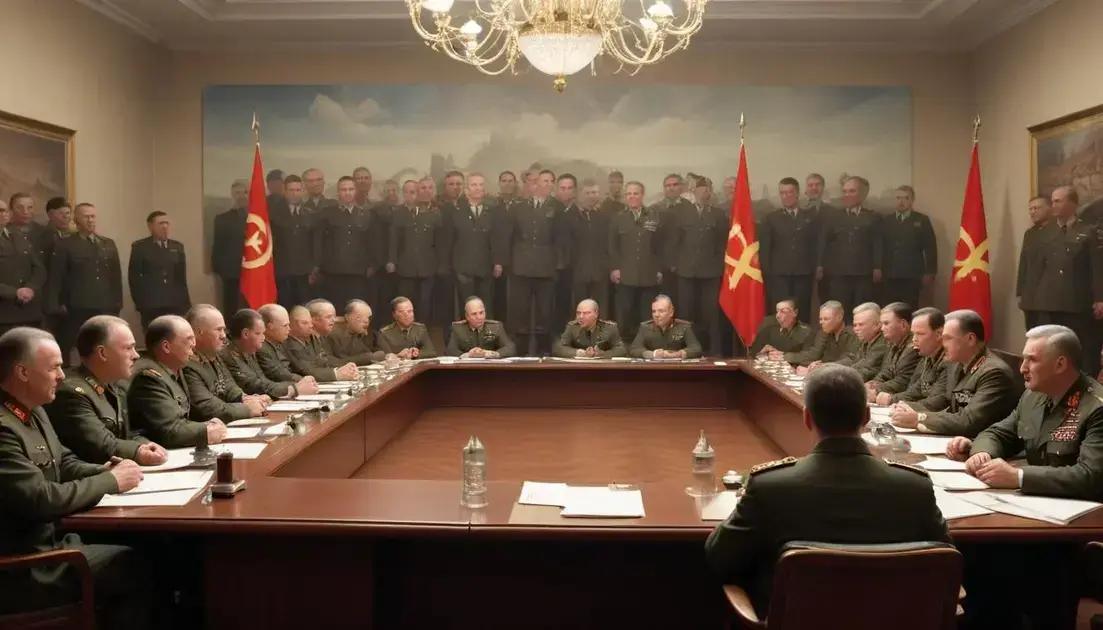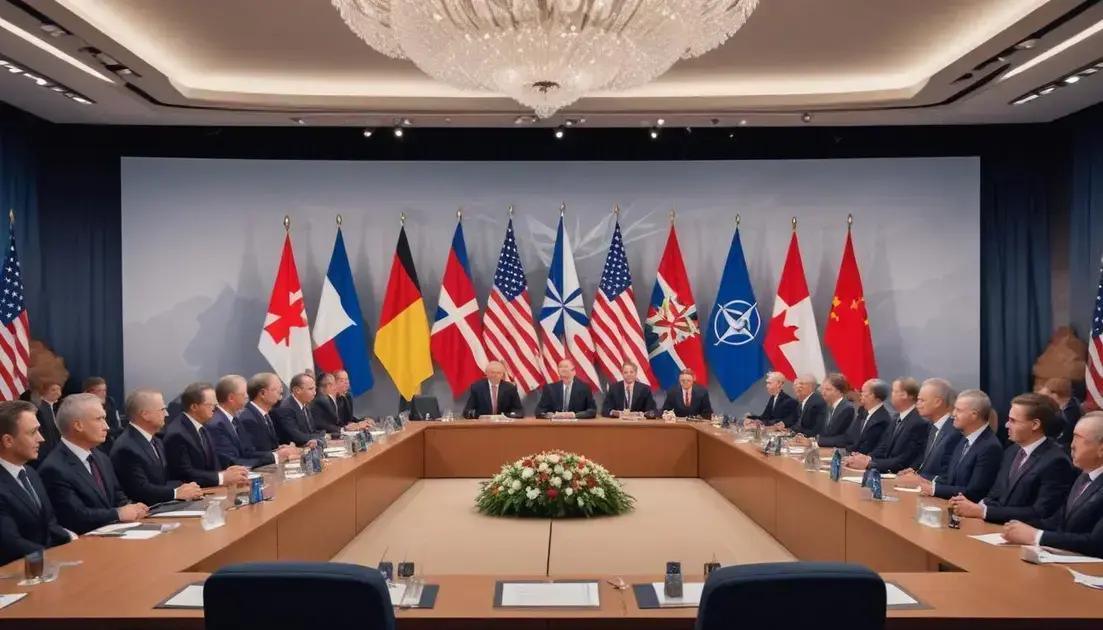
Inside the KGB: secrets of the Soviet spy machine
The KGB, or Committee for State Security, played a significant role in Soviet history and global affairs from its formation in 1954 until its dissolution in 1991. Its operations and tactics deeply influenced Soviet society, instilling a culture of fear through surveillance and repression of dissent. Key missions included espionage, political assassinations, and the infiltration of opposition groups. The KGB’s lasting legacy continues to shape modern Russia and offers important lessons about the balance of power and the need for government accountability.
Ever wondered how the KGB operated behind the scenes? Dive into the depths of this notorious agency and uncover its secrets!
The evolution of the KGB
The evolution of the KGB is a fascinating story that spans decades. Founded in 1954, the KGB stood for “Committee for State Security”. It was a key player in the Soviet Union’s intelligence and security apparatus.
Early Years and Formation
Initially, the KGB focused on domestic security, monitoring citizens for any signs of dissent. It worked to maintain the power of the Communist Party. Through fear and secrecy, it aimed to suppress opposition.
Role in the Cold War
During the Cold War, the KGB became infamous for its espionage activities. Agents gathered intelligence on Western nations, crucial during this tense period. They also launched operations to influence foreign politics.
Techniques and Tactics
The KGB excelled in several tactics, including surveillance and infiltration. They often recruited informants and used blackmail. These techniques created a culture of paranoia, both within and outside the USSR.
Transformation and Legacy
After the Soviet Union fell in 1991, the KGB was dissolved. Yet, its impact is still felt today. Many former KGB agents moved into politics and business, shaping modern Russia.
Understanding the evolution of the KGB helps us learn about its lasting influence. It shows how power and fear were used to control a nation and its citizens.
Key operations and missions
The KGB was involved in several key operations during its existence. These missions often blended intelligence work with active measures to maintain state security.
Espionage Activities
One of the main functions of the KGB was espionage. They sent spies into foreign countries to gather crucial information. This helped the Soviet Union stay ahead during the Cold War.
Counterintelligence Operations
KGB agents focused on counterintelligence too. They worked hard to find and stop foreign spies within the USSR. This kept Soviet secrets safe from threat.
Political Assassinations
The KGB was linked to several high-profile assassinations. They targeted political enemies both at home and abroad. These actions were often carried out in secret.
Infiltration of Disgraceful Groups
Another key operation was infiltrating groups that opposed the government. The KGB sought to weaken these groups from within by spreading disinformation and discord.
International Influence
The KGB also worked to influence politics in other countries. They supported communist movements and helped orchestrate coups. This showed their reach beyond the Soviet borders.
Impact on Soviet society
The impact of the KGB on Soviet society was enormous. This organization influenced many aspects of daily life in the USSR.
Culture of Fear
The KGB created a culture of fear among citizens. People were afraid to speak out against the government. This fear kept many from expressing their true feelings.
Surveillance and Control
The KGB monitored people’s activities closely. They listened to phone calls and read private letters. This constant surveillance made people feel uneasy.
Suppression of Dissent
Dissent was met with harsh punishment. Many who opposed the state faced imprisonment or worse. This stifled any chance of political reform.
Influence on Art and Literature
Art and literature were heavily censored. Writers had to follow strict guidelines. Many creative people had to conform or risk losing their freedom.
Lasting Legacy
The KGB’s presence left a lasting mark on society. Even after its dissolution, the impacts of its operations and control methods remain. Understanding this history helps explain current social dynamics in Russia.
Legacy and historical significance
The legacy of the KGB is still felt today. This organization shaped the course of Soviet history and left a mark on global politics.
Impact on Modern Russia
After the Soviet Union collapsed, many KGB members moved into powerful positions. Their influence shaped the new Russian state. This change impacted how the government operates today.
Historical Importance
Understanding the KGB helps explain the Cold War era. Their actions defined international relations for decades. This period influenced many countries worldwide.
Cultural Representation
The KGB is often portrayed in movies and books. These representations shape public perception of espionage. They also capture the mystery and intrigue surrounding intelligence work.
Lessons for Future Generations
Studying the KGB teaches us about power dynamics. It reminds us of the importance of transparency and accountability in government. By learning from the past, we can better navigate our future.
Conclusion
In conclusion, the KGB played a crucial role in shaping not only Soviet society but also global politics. Its legacy continues to influence modern Russia and the world today. By understanding the KGB’s impact, we gain insights into the importance of transparency and accountability in government.
Moreover, the stories of espionage and control remind us of the costs of power and fear. As we reflect on this history, we can learn valuable lessons that help us navigate our future. Embracing these lessons can lead to better governance and stronger communities.


